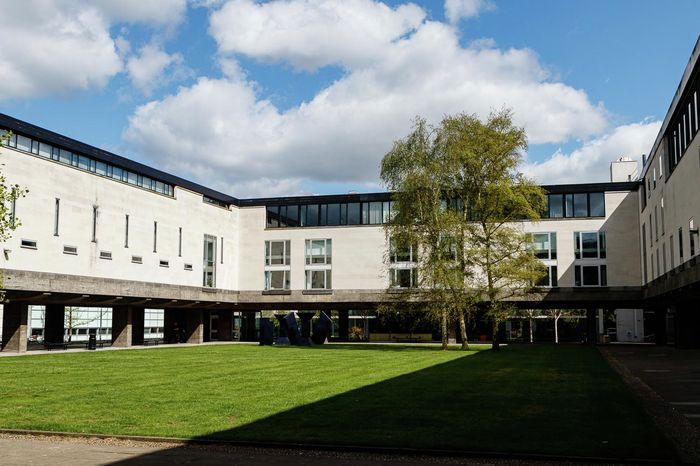Year Abroad for Modern Languages students may be supplemented with ‘Virtual Year Abroad’
Modern languages students may be offered additional teaching and “semi-immersive” language activities as part of their Year Abroad next year, says MMLL Faculty

In an online Q&A held on Tuesday (05/05), second-year students studying Modern and Medieval Languages (MML) were informed that their anticipated ‘Year Abroad’ might be supplemented or replaced by a “Virtual Year Abroad”.
Ordinarily, MML students would have to spend at least eight months of the third year of their degree living abroad, either studying, working or teaching. The suggestion for a “Virtual Year Abroad” arises due to concern that the Covid-19 pandemic will create difficulties for international travel in the next academic year.
In the session, hosted by Year Abroad Director Tim Chesters and Careers Service Adviser Krista Cooper, Chesters laid out possible plans for non-compulsory teaching to “operate in tandem” with remote work placements or studying. He further proposed that the Faculty would not “waive the whole Year Abroad”, as they “still consider it an integral part of the Modern Languages Tripos”.
This proposal follows guidance from the University Council of Modern Languages (UCML), who last week published their principles for maintaining Years Abroad across UK universities. UCML emphasise their intention “to secure alternative, interim arrangements to enable students [...] to continue their linguistic progress and sustain skills and knowledge development to an advanced level.”
The potential activities mentioned by UCML, and clarified by Chesters, include online courses in the target language with partner institutions, or remote teaching or working.
Chesters also said he thought it was “highly unlikely” that second-year students would be returning to Cambridge next academic year, as he expects them to complete their Year Abroad in whatever form it takes either “abroad, albeit possibly with some new social distancing protocols to follow” or at the “parental home.” The choice to allow students to reside in Cambridge next term would be, “a decision for colleges,” he said.
Chesters explained that members of the Year Abroad Office and Faculty are being “as flexible as we can”, with all plans being made to “make sure no one is disadvantaged” in final year assessments, and always with the “best interests of our students at heart.” He ruled out the possibility of options that are “very, very difficult, logistically speaking”, such as mass intermissions and doubling up of years, but said that of course individual cases for intermission would be considered as normal.
Students participating in the live Q&A raised concerns about the quality and benefits of a “Virtual Year Abroad”, with one student saying that it would be “a waste of student debt” to not be able to go abroad, and another asking if compensation might be available “for not reaching the level of language that was advertised by the degree”.
Chesters urged students to “keep an open mind” and not jump to conclusions about the meaning or nature of a “Virtual Year Abroad”. He clarified that working remotely from home would be classified as a “Virtual Year Abroad”, and that this could then be coupled with activities provided by the University to aid in language learning. He added that this was a “skeleton plan”, and that “hopefully there won’t be any need” of such provisions.
Chesters also emphasised the uncertainty faced by the Year Abroad Office: “Every decision we make is contingent on a whole set of other decisions by the British Council, the European Commission, by the University Council of Modern Languages, by Erasmus+, by the central University, by what colleges are doing.” He admitted that approaches would need to differ by country, based on specific conditions and FCO advice.
Chesters sought to reassure students, however, that decisions would not just be “handed out from on high”, and that the Faculty would continue to liaise with Student Representatives and students themselves before making firm decisions. He reiterated to students that the Year Abroad Office is “really on your side in this”, but that things were still largely uncertain, and to some extent out of their control, saying any ‘Virtual Year Abroad’ “won’t be able to capture the immersive experience of the full Year abroad, but we can’t forcibly open countries’ borders”.
 Comment / Cambridge students are too opinionated 21 April 2025
Comment / Cambridge students are too opinionated 21 April 2025 News / Candidates clash over Chancellorship25 April 2025
News / Candidates clash over Chancellorship25 April 2025 Comment / Does the AI revolution render coursework obsolete?23 April 2025
Comment / Does the AI revolution render coursework obsolete?23 April 2025 Comment / Cambridge’s tourism risks commodifying students18 April 2025
Comment / Cambridge’s tourism risks commodifying students18 April 2025 News / Cambridge professor paid over $1 million for FBI intel since 199125 April 2025
News / Cambridge professor paid over $1 million for FBI intel since 199125 April 2025







